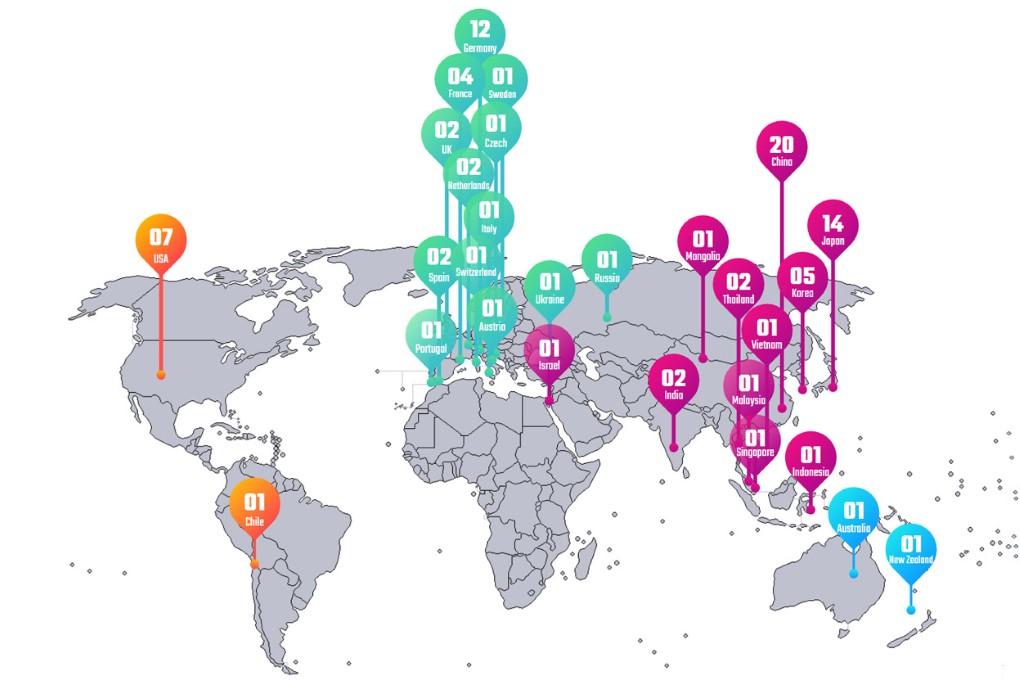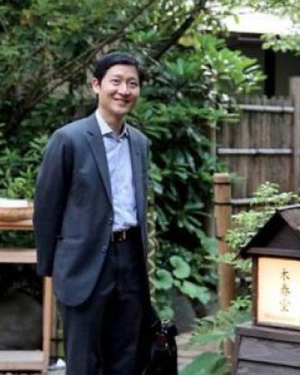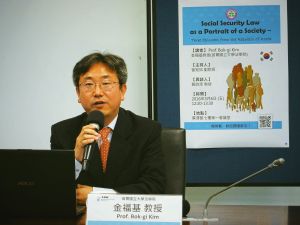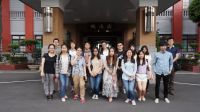eng (588)
Children categories
Summer Program (7)
College of Law Summer Program provides three weeks of intensive and substantial courses about international trade law and practice. Our top-notch instructors along with the high academic quality of our courses even allow you to obtain school credits. It is an excellent opportunity for students to familiarize themselves with theoretical and practical knowledge about international trade law and lawyering.
Additional Info
- Home Institute Constitutional Court of Belgium
- Visiting Term Fall 2015
-
Course
Seminar on International Human Right Law
(國際人權法專題討論)
Additional Info
- Home Institute Indiana University Bloomington Court
- Visiting Term Fall 2015
- Profile http://www.law.indiana.edu/about/people/bio.php?name=krishnan-jayanth
-
Course
The Legal Profession and Judicial Process of Emerging Markets
(新興市場國家的法律專業與司法程序)
Additional Info
- Home Institute University of Exeter
- Visiting Term Fall 2015
- Profile http://socialsciences.exeter.ac.uk/law/staff/jlee/
-
Course
UK and EU Company Law
(英國及歐洲公司法)
Additional Info
- Home Institute University of Washington
- Visiting Term Spring 2014
- Profile https://www.law.uw.edu/directory/faculty/zang-dongsheng
-
Course
現代中國法律與社會、法與發展之理論專題研究
Additional Info
- Home Institute Lewis & Clark Law School
- Visiting Term Fall 2014
- Profile https://law.lclark.edu/live/profiles/310-robert-klonoff
-
Course
Introduction to United States Law
(美國法導論)
Additional Info
- Visiting Term Fall 2014
-
Course
Legal English
(法律英文)Media Law, New Technology, and Constitutional Rights
(媒體法、新技術與憲法權利)International Disability Rights Law
(國際身心障礙者權利法)
Additional Info
- Home Institute Federal Judicial Center
- Visiting Term Fall 2014
- Profile https://www.fjc.gov/history/judges/wilson-samuel-grayson
-
Course
Understanding the American Criminal Justice System
(美國刑事司法制度)
Professor Bok-gi Kim discusses social security law of the Republic of Korea
Professor Bok-gi Kim from the School of Law at Seoul National University (SNU Law) gave a speech at NTU Law on the topic: “Social Security Law as a Portrait of a Society –Three Episodes from the Republic of Korea.” Professor Kim explained the Korean social security law from three aspects: public assistance, social insurance, and social welfare. He then focused on the aspect of public assistance, and raised three key issues faced by the Korean society today.
The first issue is “lonely death.” Professor Kim pointed out that the traditional value of looking after the elderly is declining in the society. He subsequently explained the circumstances under which families are required to take care of their elderly, in accordance with the Korean laws protecting the fundamental right to survival.
The second problem is “the aging society.” According to Professor Kim, Korea now faces the challenges of an aging population, low birth rates and slow economic growth, all of which call for a sustainable social welfare system. He suggested the government to reform the national pension system and encourage child birth, as well as take the initiative to provide elderly care and promote youth employment. However, there are certainly obstacles to overcome. Reforming the pension system may lead to fiscal crises, violate the constitution, or restrict the freedom of legislation. To address youth unemployment, Korea has passed an act, which mandates that at least 3% of the employees hired by the government-owned organizations should be formerly jobless young people. This act, however, faced a constitutional challenge. The court eventually decided that it does not conflict with the constitution as it aims to promote economic growth and social security.
Finally, Professor Kim mentioned the issue of “affirmative action,” discussing the concepts of substantive equality and reverse discrimination. The example he raised was the Korean act protecting the right to employment of the visually impaired. Under this act, only those with visual impairments are qualified for the massage therapist certification. There were constitutional disputes over whether this act violates people’s right to free choice of employment. The court, however, decided that this act is constitutional in 2008. The reasoning behind the ruling is that massage therapist is the only possible occupation for the visually challenged, and thus the act can protect their livelihood as well as achieve substantive equality.
How is the Korean society going to meet all these challenges? Professor Kim believes that the government should first address the problems of polarizing age groups of the Korean population, and further establish a social welfare system that is sustainable in an aging society. The speech ended with an interesting discussion between Professor Kim and the panelist Professor Sieh-chuen Huang on the challenges faced by families in Taiwan, Korean as well as many other countries with an aging population.
College of Law ranks third of institute level group
| Category | College | Department | Rank |
| University level | Office of International Affairs | 1 | |
|
University level |
NTU Library | 2 | |
|
University level |
Computer and Information Networking Center | 3 | |
|
Institute level |
NTU Hospital | Hospital | 1 |
|
Institute level |
College of Liberal Arts | Foreign Language Teaching & Resource Center | 2 |
|
Institute level |
College of Law | College of Law | 3 |
|
Department level |
College of Liberal Arts | Department and Graduate Institute of Library and Information Science | 1 |
|
Department level |
College of Electrical Engineering and Computer Science | Graduate Institute of Electronics Engineering | 2 |
|
Department level |
College of science | Department of Chemistry | 3 |
|
Department level |
College of science | Department of Geosciences | 4 |
|
Department level |
College of Engineering | Department of Material Science and Engineering | 4 |
|
Department level |
College of science | Department of Phychology | 4 |
|
Department level |
School of Pharmacy | School of Pharmacy | 4 |
|
Department level |
College of BioResources and Agriculture | Department of Entomology | 4 |
|
Department level |
College of Electrical Engineering and Computer Science | Graduate Institute of Communication Engineering | 4 |
More...
Retirement Party!
Retirement Party!
This emotional event took place on Wednesday afternoon Sep. 30th, 2015, attended by special guests from all walks of life so as to give thanks to retired Prof. Keh-chang Gee, Prof. Jung-chien Huang, and Prof. Ming-cheng Tsai, an incumbent Justice of the Constitutional Court, for their many years of contribution to the College of Law.
Dean Sheng-lin Jan remarked everyone was ready to dedicate their whole life to their career when picking up one. More so as teachers. Here we had three teachers who really gave up their most precious part of life to the College. Retired as they were, they would keep caring about the faculty and students wherever they were bound into their future life.
Guest Address I
Prof. Huang from National Chung Cheng University briefed Prof. Gee’s many contributions to Tax Law studies, including basic legal concepts of taxes, principles of Tax Law, the development of Tax Law studies and the foundation of its academic significance. Prof. Huang anticipated others could take up the endeavors in the field of Tax Law studies to complete the establishment of Fiscal Court, and to realize the protection of taxpayers’ rights and the due process of Tax Law. Accountant Huang said he admired so much Prof. Gee’s relentless effort.
Lawyer Eric Tsai showed his gratitude for Prof. Gee’s years of cultivating and building, which enabled Administrative Court to establish principles of Tax Law. He hoped Prof. Gee could keep on assisting and leading so that the education, legislation, and judgment quality could stay constantly improved.
At last, Mr. Jong expressed thankfulness to Prof. Gee on behalf of all his students.
Prof. Gee’s Retirement Speech.
He particularly gave thanks to Prof. Tez-Chien Wang, Prof. Hong-Si Lee, and Prof. Yueh-Shen Weng for their concern and encouragement, which were crucial to the perseverance of his teaching and researching.
Guest Address II
Prof. Mau-sheng Lee talked of anecdotes which happened when he and Prof. Jung-chien Huang travelled around Japan and Taiwan together. Those anecdotes implied Prof. Jung-chien Huang’s noble character outside teaching and researching.
Prof. Huang’s Retirement Speech
Prof. Huang talked about the feeling and experience he had had since his retirement this August. He wished everybody plain sailing on the boat of time.
Guest Address III
Prof. Sheng-lin Jan ‘’reported’’ Prof. Ming-cheng Tsai was incredibly kind to Tsai’s mother and mother-in-law and always easygoing to people. Prof. Wen-yeu Wang praised Prof. Tsai was really open-minded, prudent, and loyal during his 2 terms as Dean of the College of Law.
Prof. Tsai’s Retirement Speech
Prof. Tsai was grateful to all the teachers, and hoped everybody could stay in touch.
This retirement party ended up in a sentimental yet somewhat joyful atmosphere. Three teachers had cultivated a number of excellent students and been loved and respected by them. College of Law couldn’t be more thankful to them three. We wished them every happiness and expected them to keep on communicating with the faculty and students in hopes that fresh lawyers would still have the chance to learn from them.
Doug Pardue, Reporter for 2015 Pulitzer Prize -Winning Series
On Tuesday, April 28, American reporter Mr. Doug Pardue was invited to give a speech to us at the NTU Law School. Mr. Pardue wrote a series of report “Till Death Do Us Part” with other reporters from “The Post and Courier” newspaper office. “Till Death Do Us Part” is related to domestic violence, which had won the 2015 Pulitzer Prize Gold Medal Award for Public Service.
There were two speeches given by Mr. Pardue with different themes. The first theme was “Journalism and the American Criminal Justice System”, which was hosted by our visiting professor Samuel Wilson and joined by Charles Wharton. Mr. Pardue discussed about how reporter can use his reports to evoke the social consciousness when the law enforcement officers and the crime justice system failed to function properly on domestic violence problems.
The other speech was held jointly with The Graduate Institute of Journalism and was hosted by their chairman Ms. Hung. The theme was called “911, Terrorism, War and a Journalist’s Role in Making a Difference”. Mr. Pardue shared how the reports related to 911 attacks put emphasis on “human” and bring out the true meaning behind this tragedy. In addition, there were Q&A session and discussions after the both speeches which generated great feedback.
Exchange Students Visited The Legislative Yuan
March 31st, our department assistant took 17 exchange students to visit The Legislative Yuan of Republic of China. Upon arrival, receptionist guided students to the briefing room to watch a film about The Legislative Yuan, which included an introduction of its organization, composition and current legislators.
Then we passed through the building which was built during Japanese colonial period, and reached the Council Hall which all of us were very excited to see. We intentionally chose to visit on the day that the final general interrogation was held, so exchange students had an opportunity to observe how administrators and legislators interact with each other in a democracy country.
Afterwards, exchange students got permission to sit in the public gallery on the second floor, and the receptionist explained seats allocation of legislators and administrators as well as the meeting progress. She even explained what had happened on the 318 students movement in Legislative Yuan last year.
In Council Hall, the legislators prepared different ppt slides to interrogate the administrators from different departments. In addition to discussing the issue about officials’ allowance in Kinmen territory, there was also an excellent interrogation and defense about whether our country should join the Asian Infrastructure Investment Bank. The legislators addressed their research findings on that issue, including details about what name should we use to join, the investment budget, and benefit assessment, etc.
After the tour finished, some exchange students chose to stay longer in the Legislative Yuan to continue to observe and learn. We truly believed that this visit trip would be a fresh and inspiring experience for them since they all came from countries which implement different political systems.
College of Law and the College of Social Science Reunion
On the relaxing noon of March 18th, College of Law and the College of Social Science held a meaningful reunion together. There were many special guests, teachers, visiting professors and administrative staffs joined this activity to reminisce the pass time in Xuzhou Rd. campus.
As we all know, the connection between College of Law and the College of Social Science is strong. However, to maintain and strengthen the interaction; to facilitate teaching and research cooperation, and to combine our resources, we actively prepared for this reunion. We spent a whole month developing concept of topic, activity content and its details. With limited budget, we finally managed to present a high-quality event that every participant and staff was an eyewitness of a beginning of a new era of collaboration.
This time the event was held by College of Social Science, the next time will be hold in later of this year by College of Law. In the future, we will take turns to hold this event.











